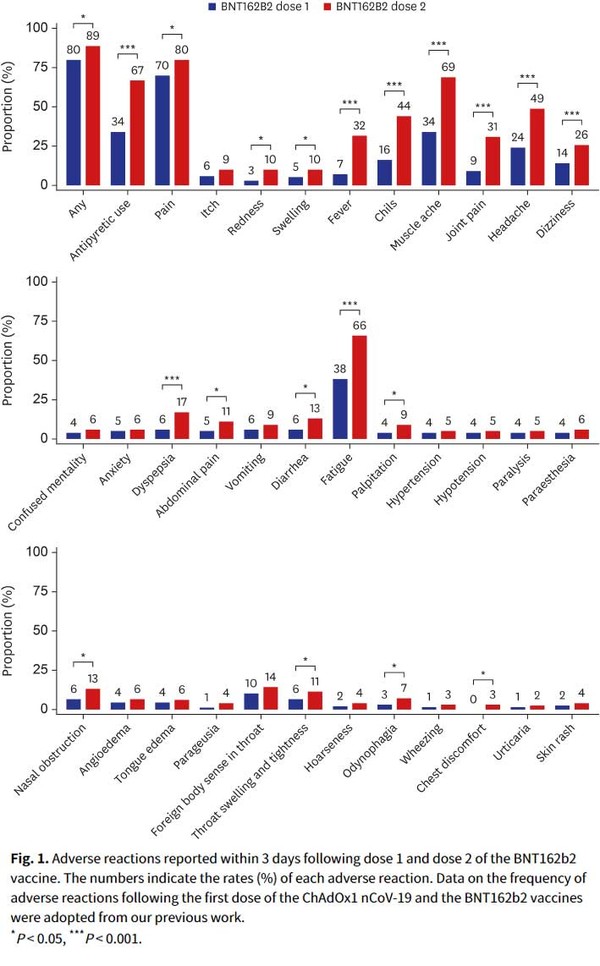The rates of adverse reactions were higher after the second dose of the Pfizer vaccine compared with the first dose among healthcare workers at a Korean hospital, a medical report showed.
The report analyzed the reactions of 265 healthcare workers who received the full two doses of the Pfizer vaccine at Asan Medical Center (AMC).
The research team, led by professor Bae Seong-man of infectious disease at AMC, released the poll results on 265 people who responded to the mobile-based survey among 342 healthcare workers in the Journal of Korean Medical Science (JKMS). The Pfizer vaccine requires two shots with a three-week interval.
The survey showed that 89.1 percent of 265 healthcare workers reported adverse reactions after the second dose vs. 80.1 percent after the first dose. The most common systemic reactions were muscle ache (69.1 percent), fatigue (65.7 percent), headache (48.7 percent), chills (44.2 percent), and fever (32.1 percent).
Systemic reactions occurred more frequently after the second dose than the first dose. However, similar to the first dose of the vaccine, the frequency of the adverse reactions decreased with time after the second dose.
The rate of the adverse reactions was the lowest at 77.8 percent among those in their 60s, and over 90 percent of healthcare workers in their 20s and 30s experienced side effects. Women (95.3 percent) had more frequent adverse reactions than men (77.9 percent).
“The rates of local and systemic adverse reactions were higher in the second dose of the Pfizer vaccine than the first dose,” the research team said. “As adverse reactions are more frequent in the second dose of the Pfizer vaccine, the health authorities should consider this when planning a massive inoculation program.”


